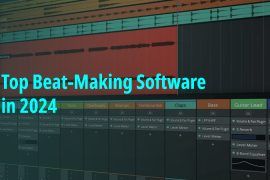Is a virtual event platform the same as a video conferencing platform like Zoom? You might be wondering. Actually, no. Although the features of the two tools will occasionally overlap, their designs are somewhat different.
A virtual event platform is built to scale, and it provides interactive features and immersive experiences that mimic real-world events. On the other hand, because video conferencing is their primary focus, a video conferencing platform is unlikely to include interactive features beyond chat rooms and breakout rooms.
Table of Contents
Key Features to Look for in Virtual Event Platforms

Most people will instantly use a video conferencing program like Zoom for a meeting or a simple online event, but these are frequently not the greatest choices for bigger or more immersive events. The fact that virtual event platforms are created with interaction in mind gives them a distinct advantage over video call solutions. While video call software allows you to host large virtual meetings, it is more difficult to converse with more than a small group of people at once. People struggle to be heard because the screen doesn’t have enough room for them to do so. Additionally, there is a lack of atmosphere because most of what you see on screen are other people via their webcams.
Platforms for virtual events address all of these issues. It is simple to initiate and participate in large-scale dialogues thanks to different keynote areas, workshop rooms, and private meeting booths. Additionally, the most immersive solutions available let you experience an event place virtually or explore the environment as a digital avatar, making participation more enjoyable.
You should search for a virtual event platform that is scalable, adaptable, and user-friendly if you’re in the market for one.
Top 10 Virtual Event Platforms
Airmeet
You want a simple, approachable solution for your virtual gatherings. So Airmeet is something to consider. The user-friendly platform Airmeet has a 4.6/5 rating on G2 out of 549 reviews, making it suitable for almost any event. It has been employed by some of the most well-known companies, including Forbes, Walmart, and FedEx, while still providing packages that are appropriate for all sizes of companies.
Despite having all of the top features you’d want in a virtual event platform, they stand out for how user-friendly their interface is.
Remo
Do you have a distinct vision for your online event? Remo will assist you in bringing it to life according to your unique requirements.
With Remo, you can give your attendees access to a whole virtual world that will keep them interested and entertained. Their unique feature allows you to design unique floor plans to customize the experience for your attendees.
vFairs
One of the top virtual event platforms on the market is vFairs, which has over 1,300 ratings and is ranked #1 on G2. As its name implies, this virtual event platform focuses on fairs, including trade events and career, job, and education fairs. The virtual exhibit hall, custom event builder, event gamification, and analytics and reporting tools are a few of their products.
They organize hybrid events in addition to virtual events, which is perfect for brands seeking a multi-channel strategy.
GoToWebinar
The preferred hosting service for webinars is GoTo Webinar. This tool is a fantastic choice whether you’re providing employee training or a product showcase. Their monthly prices range from $49 for individuals to $499 for businesses. Each subscription includes email marketing for events, registration tools, and reporting and analytics.
Pre-recorded webinars with interactive elements like polls, Q&As, surveys, handouts, multi-device flexibility, and interaction with CRMs, Google Suite, Microsoft Teams, and more are some of the platform’s most intriguing features.
Hopin
Hopin, one of the top virtual event platforms, can accommodate small and big gatherings. Hopin provides a flexible and scalable platform with all the features your event will require, such as real-time statistics, multi-stage sessions, and registration support.
Even the basic subscription, which is free, allows unlimited events with customizable registration, statistics, and multi-venue possibilities for up to two hours.
This is a fantastic choice if you’re searching for a platform that you can expand on.
Zuddl
If you’re looking for a virtual event platform, Zuddl is absolutely worth a look because it was named “Best Support” by G2 for small enterprises. Although they provide the same functionality found on many platforms, they strongly emphasize customization, usability, and branding.
Zuddl enables businesses to design engaging, branded virtual experiences that encourage interaction among visitors. The process is as follows:
- Tier-based matchmaking, breakout spaces, and digital business cards for networking are among the simple-to-use templates, widgets, and landing pages for branding.
- using real-time leaderboards to gamify
These are only a few of the tools that Zuddl provides.
Accelevents
Accelevents offers a wide range of services, including product launches, employment fairs, and tradeshows.
For companies looking for both an engaging audience and a clean UI, they provide a 360 virtual event experience. Key elements consist of:
- Broadcast live video integrated
- Interaction in the lobby through activity walls, welcome videos, and leaderboards
- Analytics dashboard with information on enrollment and usage
- Expo halls and customized exhibits for sponsors
With an overall rating of 4.7/5, Accelevents is also on Capterra’s shortlist for “Emerging Favorite” in the virtual event software category for 2022.
Goldcast
Goldcast is a virtual event platform created exclusively for B2B companies.
Some of the top B2B companies, such as GitHub, Salesloft, Hootsuite, and Drift, have confidence in their platform. Here are a few causes for this:
- An easy-to-use interface designed for non-technical users
- No-hassle CRM integration
- Dedicated assistance groups
- modern production equipment
- capacities for hybrids
ON24
The ON24 platform promises to deliver on attendee engagement, while other platforms concentrate on personalization. They concentrate on building engaging, interactive virtual experiences while also gathering useful data that you may use long after the event has ended.
By using ON24, you can make:
- semi-live or live webinars
- Roundtable discussions that are fun and emphasize video involvement
- pages with high conversion rates
- Events that are open to audiences worldwide
Hubilo
Consider Hubilo if you want to design your virtual event yourself. Given the wide front- and back-end customization options, it is frequently referred to as a DIY platform. Additionally, it provides worldwide support for users who want to organize interesting live, blended, and virtual events.
Hubilo is renowned for its strong customer service, flexible branding options, and numerous interaction tools.
Conclusion
These are the top 10 virtual event platforms, then. You can reduce your options for hosting your subsequent digital event using this list. To know everything about the best virtual event platforms, connect with SaaSworthy.






